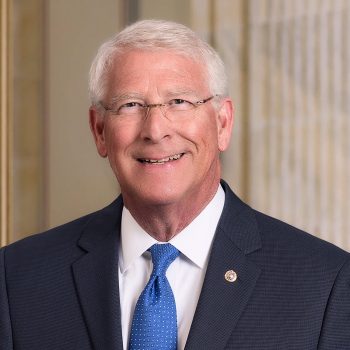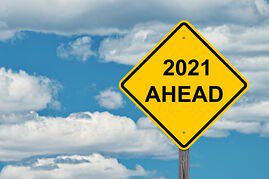
Congress Approves New Aid and Several Wicker-Led Bills
This past week, President Trump signed a new COVID-19 relief bill paired with legislation to fund the government through the end of fiscal year 2021. The measure passed Congress with huge majorities after congressional leaders worked closely with President Trump’s senior leadership team to craft the final agreement. Days later, President Trump signed the bill into law. Although it does not contain every priority the President or I wanted, this measure will provide a much-needed boost to families, workers, and businesses weathering the effects of this pandemic.
Direct Relief for Americans
Earlier this year, Congress passed the largest relief package in U.S. history to meet the urgent needs arising from the coronavirus pandemic. Although many have regained employment, millions still remain out of work, and eight million Americans have fallen into poverty. The food, entertainment, and travel industries are particularly hard-hit by ongoing health restrictions. It is clear that Americans need a fresh round of assistance.
The new aid package provides direct payments of $600 for every adult making up to $75,000, plus $600 for each child. It expands weekly unemployment benefits by $300 for 10 weeks, a short-term lift that will help unemployed Americans until they can find work again. It also adds $285 billion to reopen the Paycheck Protection Program, allowing more small businesses to receive forgivable loans to keep employees on the payroll. The bill encourages employers to provide paid sick leave by offering a tax credit. And it provides new support for agriculture and the transportation sector, which are suffering severe losses.
This legislation will also boost our nation’s effort to defeat the coronavirus. The bill directs billions to support the distribution of vaccines, which are already reaching at-risk individuals and frontline workers. It designates $22 billion for COVID-19 testing and tracing efforts. And it sends more than $90 billion to schools, universities, and daycares to help cover expenses necessary for safe reopening. I helped secure additional funding to support telehealth, enabling more people to receive care from home during the pandemic.
Landmark Bills Will Benefit Mississippi
The government funding package included additional measures that will benefit Mississippi. I helped guarantee support for new broadband data maps, which will lead to more broadband development in unserved areas. Congress also approved millions to help deploy broadband in rural communities, which I have long supported. In addition, I worked to secure funding to help American companies remove and replace Chinese equipment from their telecommunications networks, which could be used to spy on Americans.
Lawmakers passed another major priority in the Water Resources Development Act. This bill could lead to more investment in Mississippi seaports, like the Port of Gulfport and the Port of Pascagoula, and harbors in Biloxi, Port Bienville, and Bay St. Louis. It will boost funding availability for environmental projects in DeSoto and Jackson Counties, and create feasibility studies for projects in Jackson, Hancock, and Jones Counties. I wrote a provision requiring a study on the impacts of flooding that overwhelmed the Bonnet Carré Spillway in 2019. I hope this study will lead to new projects that will reduce flooding along the Lower Mississippi River.
Congress also approved several bills I have been working to pass since 2019. One of those is the PIPES Act, which will improve the safety of pipelines that deliver energy to our communities. Congress also passed my legislation overhauling the certification process for commercial aircraft after my committee’s investigation revealed troubling oversight failures. This legislation will correct those regulatory lapses and improve the safety of our aviation system. Taken as a whole, this year-end legislation will advance America’s economic and security interests as we enter 2021.
Press Release
1/1/2021









